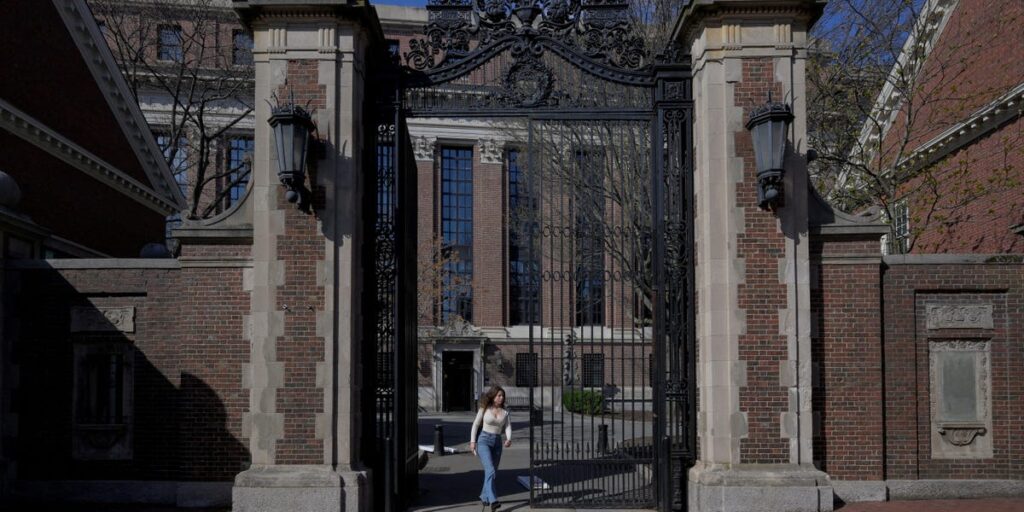Harvard University recruited a lineup of law firms and lawyers with ties to allies of President Donald Trump to sue the Trump administration over freezing billions in federal grants and contracts.
The lawsuit filed in federal court in Massachusetts features a long list of lawyers from four different firms, brought against an equally lengthy list of executive agency officials and Trump appointees, including Secretary of Health and Human Services Robert F. Kennedy Jr., Attorney General Pam Bondi, and Secretary of Defense Pete Hegseth.
The lawsuit said that the funding freeze would impact ongoing research that develops “novel drugs to fight Parkinson’s and Alzheimer’s diseases, engineer nanofibers to protect servicemembers and first responders, support American astronauts in space, and design an artificial intelligence system that can be used to diagnose and treat cancer.”
Quinn Emanuel, headquartered in Los Angeles, has long represented Tesla CEO Elon Musk, who donated $250 million to Trump’s campaign and is now the face of the White House DOGE office and its effort to decrease the size of the federal government.
William Burck, a lawyer at Quinn Emanuel on the lawsuit, is a former White House lawyer for Republican President George W. Bush, and was hired by the Trump Organization in January to advise the company on ethics issues. Burck also has a record of representing Steve Bannon, former White House Chief Strategist during the first Trump administration.
Aside from Burck, Robert K. Hur, part of the law firm King & Spalding, is representing Harvard. He was nominated by Trump in 2017 to serve as Maryland’s US attorney and was once a clerk to Chief Justice William Rehnquist.
Hur was also named US special counsel in 2023 to investigate Democratic President Joe Biden’s handling of classified documents. He, however, declined to pursue charges against Biden.
At the law firm Lehotsky Keller Cohn, several lawyers participating in Harvard’s case are former clerks for conservative Supreme Court Justices Brett Kavanaugh or Samuel Alito.
Additionally, attorneys from Big Law firm Ropes & Gray are listed on the suit as representing Harvard.
The Trump administration has been targeting not just universities with the freezing or cancellation of funding grants or government contracts, but also aiming at Big Law firms with executive action. Thus far, some firms have cut deals with the Trump administration, while others have filed suit. None of the law firms in the Harvard suit are known to have cut deals with the Trump administration or been the subject of executive action.
In Harvard’s case, the funding suspension came after the university rejected Trump administration demands to dismantle diversity, equity, and inclusion programs and limit admissions of international students deemed “hostile to American values.”
The administration accused the university of fostering “divisive ideologies” and failing to protect Jewish students, prompting a federal review led by the Departments of Health, Education, and Homeland Security.
“No government — regardless of which party is in power — should dictate what private universities can teach, whom they can admit and hire, and which areas of study and inquiry they can pursue,” Harvard President Alan M. Garber, who is Jewish, wrote in a letter on April 14.
Harrison Fields, the White House Principal Deputy Press Secretary, responded in a statement to BI on Monday that “the gravy train of federal assistance to institutions like Harvard, which enrich their grossly overpaid bureaucrats with tax dollars” is ending, because “taxpayer funds are a privilege, and Harvard fails to meet the basic conditions required to access that privilege.”
Quinn Emanuel, William Burck, Robert K. Hur, and Lehotsky Keller Cohn did not immediately respond to requests for comment.


